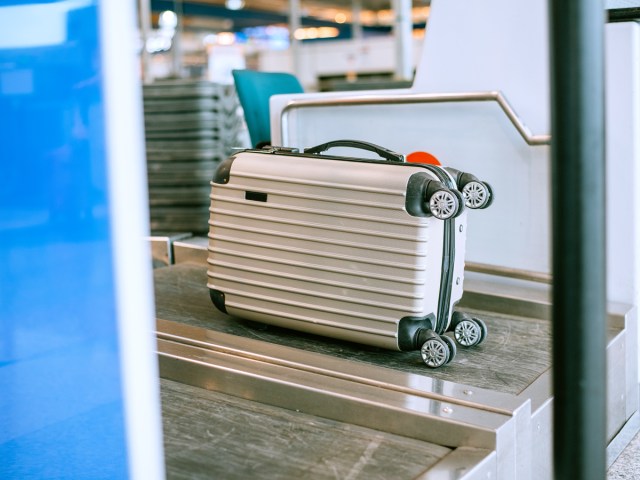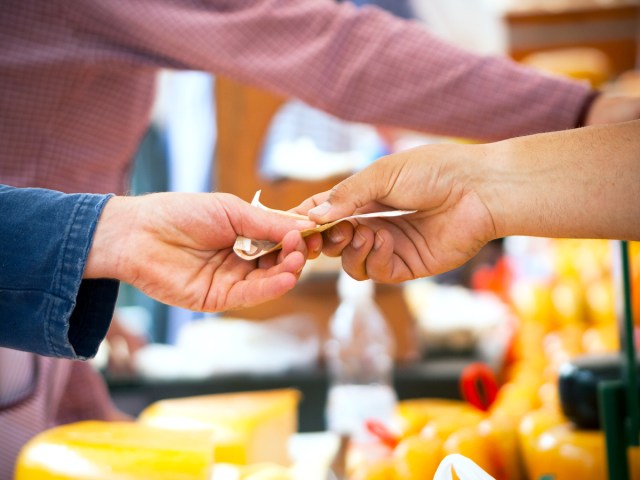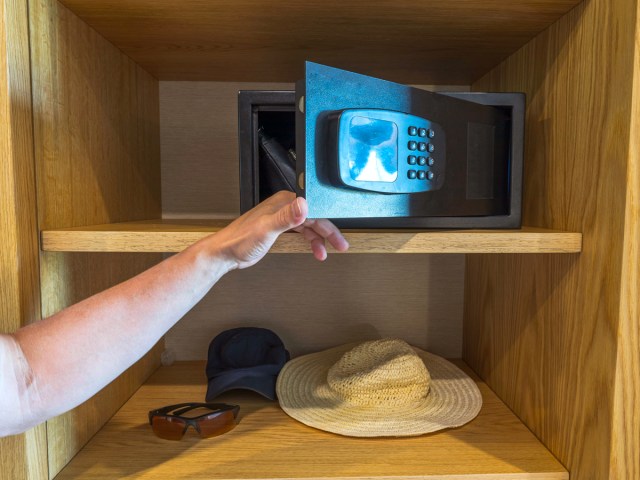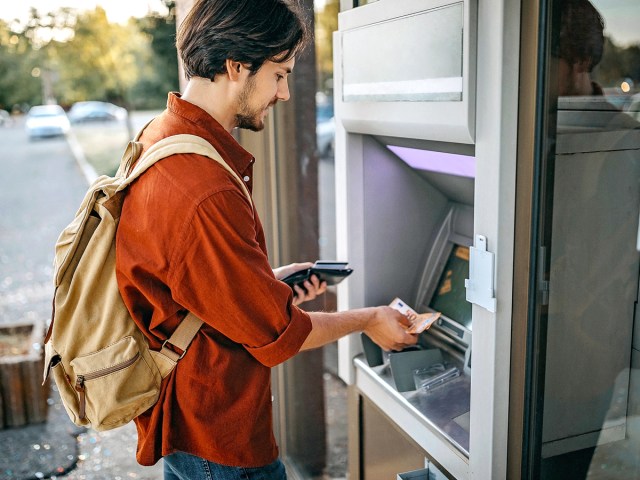Most vacations pass by trouble-free. Nevertheless, it’s a sensible mantra to plan for the worst even as you hope for the best. Away from familiar surroundings where it’s far easier to blend in, tourists may become obvious targets while traveling. But there are a number of strategies you can employ to make being a victim of a snatch thief or pickpocket far less likely. Follow these helpful tips for safely carrying cash as a tourist.
Note: All featured products and deals are selected independently and objectively by the author. Daily Passport may receive a share of sales via affiliate links in content.
Never Transport Cash in Checked Baggage

Whether you’re flying, taking the train, or using a long-distance bus service, it’s wise to keep your cash on your person at all times. That means avoiding transporting it in checked luggage, even if the bag is locked. There’s a small chance your bag could be damaged, causing the contents to fall out, or for the bag to be lost altogether.
Airlines publish their conditions of carriage, and when it comes to baggage liability, they may explicitly exclude cash from what’s covered. American Airlines’ Conditions of Carriage, for instance, doesn’t cover money if it’s transported in checked baggage. They reinforce this policy with the message: “If it’s irreplaceable, sentimental, or you depend on it for your well-being, keep it on you or leave it at home.”
Stay Aware of Your Surroundings

Thieves and pickpockets often rely on distraction, which helps explain why such thefts are common with unwary travelers at major tourist destinations. While visitors have long been targeted in busy cities such as Paris, Rome, and Barcelona, even places that are associated with low crime rates can be affected.
Recently, following a spate of thefts on Iceland’s Golden Circle route, tourists have been warned to be vigilant when visiting the area. Often targeted are those who don’t keep a close eye on their belongings, so to avoid being a victim, stay aware of your surroundings.
Choose Your Travel Bags Carefully

Keeping your cash in a secure compartment within a zippered or padlocked bag can bring peace of mind when passing through a busy area. Brands such as Pacsafe employ clever anti-theft technology — such as a hidden wire mesh that makes bags harder to slit open, slash-resistant straps, and lockable zippers — across a number of styles, from cross-body bags to large backpacks.
Many travelers also opt for a money belt or neck wallet. Their flat design ensures that each can be worn directly against the body but remain hidden away underneath clothing. Some also have RFID-blocking capability, which aims to keep your cards as safe as your cash.
Split Up Your Cash

If the worst happens and an incident occurs, you’ll want to make sure you’re only carrying a small amount of cash in an easily accessible place. That way, when paying for goods, you won’t be flashing wads of notes to anyone who’s looking, or if you find yourself in a dangerous situation, you won’t have to hand over all of your cash.
If you’re traveling with more than one item of carry-on luggage, it makes sense to split your money between all of them, so that if one bag gets stolen or left behind, you’ve split the risk and haven’t lost all your cash. You might even choose to stash some emergency cash in an unlikely place, such as your shoe.
Book a Hotel With an In-Room Safe

Once you check into your hotel room, make use of the in-room safe if there is one. However, this method isn’t always foolproof, and thefts do occasionally occur. Hotel room safes have a master code or override key to ensure that designated employees have the ability to open the safe if the guest has forgotten their passcode or lost the key, or after checkout if the safe has been left locked.
Nevertheless, if you are a victim of a theft from a hotel room safe, you should be able to demonstrate to your insurer that you took all reasonable precautions and (hopefully) make a successful claim. For peace of mind, you might also consider investing in a hotel safe lock.
Be Mindful of Where You Use an ATM

Using an ATM while you’re traveling reduces the amount of cash you’ll need to carry at any one time. However, when you need to make a cash withdrawal overseas, give some thought to where and when you’ll visit the ATM. Some destinations are known for their relatively high crime rates, so you’ll need to be especially careful if you are vacationing where street thefts are common.
Pick an ATM in a safe location, such as within a shopping mall, inside the lobby of a hotel, or inside the foyer of a bank where security guards are present. Unless you have no choice, avoid withdrawing cash after dark or in poorly lit areas. Make sure to keep your wits about you as you complete your transaction and always put your money away before heading back out onto the street.
Use Cards Instead

Perhaps the most obvious way to reduce the risks of traveling with cash as a tourist is to avoid doing so in the first place. In many parts of the world (though not all), contactless payments with credit and debit cards or transactions using mobile systems such as Apple Pay and Google Wallet have reduced the need to carry cash at all.
Though using such forms of payment may come with their own security risks, you might feel safer if you don’t have significant amounts of temptingly untraceable currency about your person. You’ll most likely want to carry a few notes to take care of any cash gratuities, but apart from that, at the end of the day it may be a more sensible option to rely on alternative forms of payment.
More from our network
Daily Passport is part of Optimism, which publishes content that uplifts, informs, and inspires.























